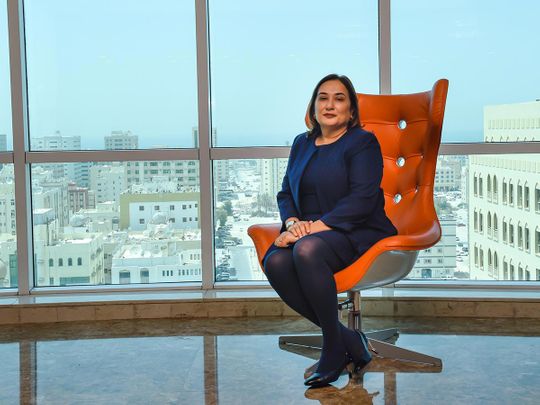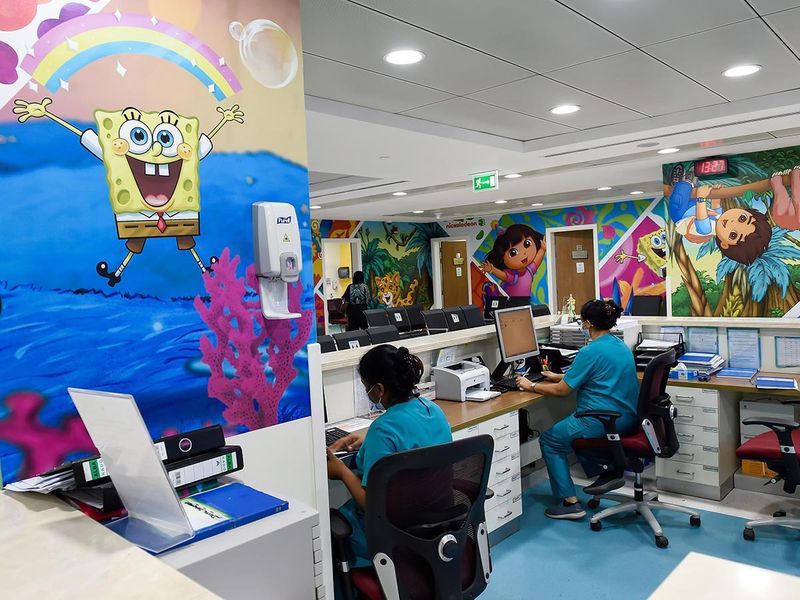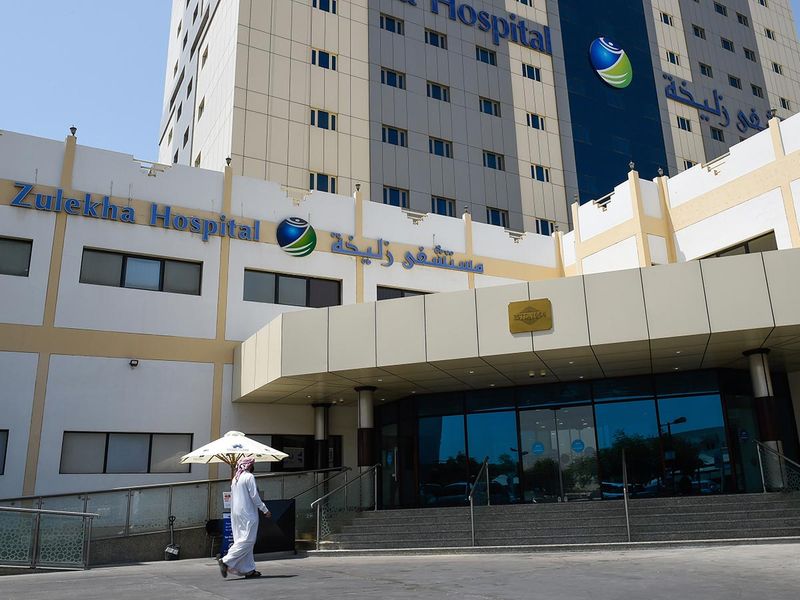
Dubai: There’s one thing that Zanubia Shams will not be doing in a tearing hurry – building another hospital in the UAE right now. She has valid reasons too.
Sure, tackling on the COVID-19 pandemic has stretched healthcare resources and capacities like never before. But once the medical needs of the population go back to pre-pandemic times, the UAE’s existing healthcare networks are more than enough to meet those – it’s a point that Zanubia is emphatic about.
“The WHO (World Health Organisation) recommends 3 hospital beds for every 1,000 people - the UAE is reasonably well covered on that score,” says the Co-Chairperson of Zulekha Hospitals,, which has two facilities in the UAE and has built quite the track-record in the mid-market space. “There is no real or urgent need for more.
“There are a good number of facilities in Dubai and Sharjah that exist or can come online soon. I don’t think there is any need for a further expansion as things stand today going by the demographic layout of the UAE.”
Shared perspective
Zanubia’s perspective is very much the majority opinion within local healthcare circles. Some of the biggest names in the business have said they are not looking to add more hospitals or clinics in the medium term. Most of the major projects have already come on stream, including those delivered by relatively newer players who have come up with super-specialised healthcare centres.
These voices from within the industry are at odds with what consultancies have been saying – that the UAE and other Gulf markets will continue to see more standalone hospitals being delivered. Their reasoning is that private sector operators need to start planning and building for the time when UAE and Gulf populations start growing again.
Zanubia is having none of that – “One of my concerns is that a lot of data connected to healthcare needs are inflated. The data on the ground is very different from what is being presented in feasibility studies, reports of increased business, etc. When any set of countries have static demographics, it’s hard to imagine any increased demand for services.
“My bankers keep telling me a lot of things – but I won’t listen to them. I prefer my own opinion, especially when it comes to expansion or committing to new investments.
“At least for the next three years, I don’t see any change in these markets. We don’t really see these markets as being underserved. These are not high populated countries. “They have fairly well functioning government-owned and private healthcare services - there is no real shortage.
“With brand new hospital projects, several things have to come together. The financial foundation has to look attractive; we need to acquire land at a certain value; and the cost of the built-up area has to be come together in a certain way.
“Manpower costs have to look attractive. And then, the area where you are planning to put it up has a shortage of such services. That’s the ideal situation from our angle.”

A ‘family’ brand
Zulekha Hospitals was launched by Zanubia’s parents – Zuleka and Iqbal Daud - in the early 1990s, after serving as medical practitioners in the UAE since 1964. The Sharjah facility features 185 inpatient hospital beds, while the Dubai location has 140. Plus, there is a five-year old, 200-bed hospital in Nagpur in India, which is where her parents are from.
But at some point, wouldn’t Zulekha Hospitals feel the need for further organic expansion, whether here in the UAE or elsewhere? Or would those future changes happen in the way healthcare is being delivered, whether through telehealth services or any other digital inspired ways?
“I would like to use an allegory here - imagine you are swimming from one shore to another. At some point, you look back and you can’t see where you started from. You look ahead, and you cannot see where you should be. It’s somewhat the same with digitisation.
“I think Zulekha Hospitals is better than midway on that digital swim. I can see the other end. A lot of things have to be standardised before you digitise. It’s just a system and in return it gives a lot more data and standardisation. But this may come at the cost of some efficiency and flexibility.
“A hospital is not about me wanting to go digital. Doctors may still want to write out their prescriptions rather than type into computers. Insurance companies may want billings done in a certain way. “Everybody is moving in that digital direction. The issue is there are sometimes multiple platforms and multiple regulatory environments and we have to fit into their platforms.”

India venture
Having focussed all of their attentions on the UAE until then, was the plan to set up in Nagpur more an emotional investment?
“We were thinking of a new investment this was some time in 2006,” said Zanubia. “That was when the IFC (International Finance Corp. and a World Bank affiliated entity) approached us saying they would fund our project… if it was in a developing country. At the time, we had the land in Nagpur but I couldn’t get the rest of the financing together.
“At that time, we were also busy with the expansion of the Sharjah facility. IFC’s terms for the Nagpur project were reasonable and we went ahead with it. The facility opened in 2016 and it’s been doing OK. India’s a different of challenges – but we are fine.
“If you ask me, we will remain centred in one market – the UAE. We understand the medical business and, basically, our strengths remain as an operator offering competitive prices. We sell a service that people need.”



